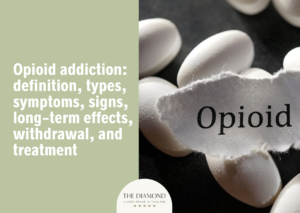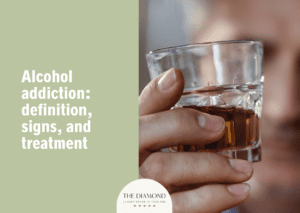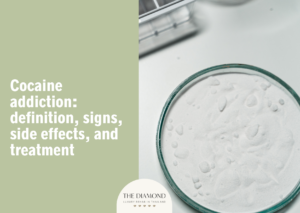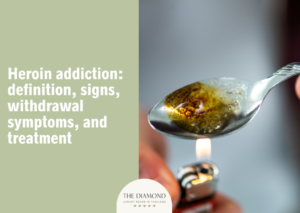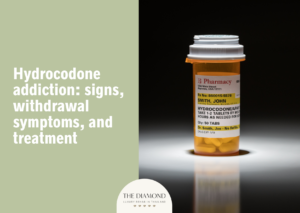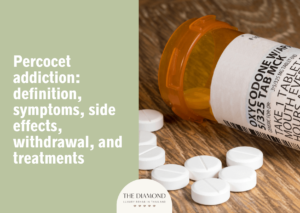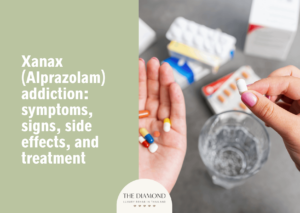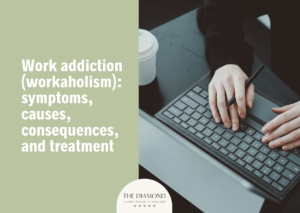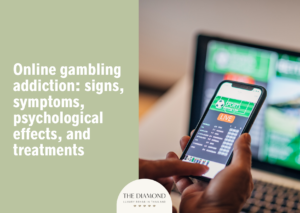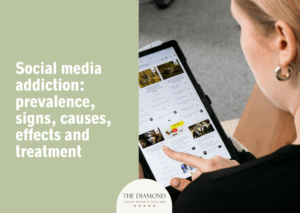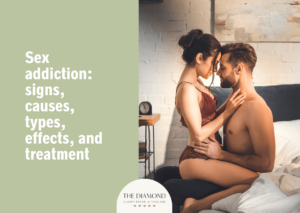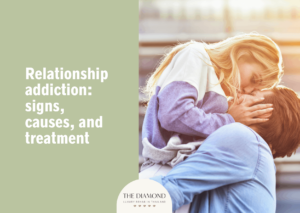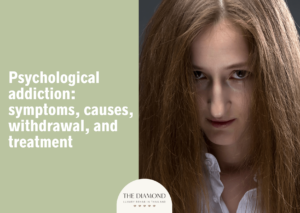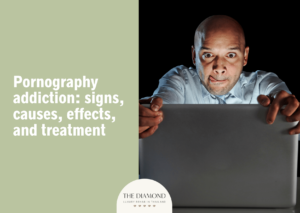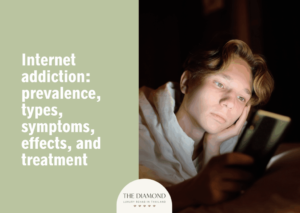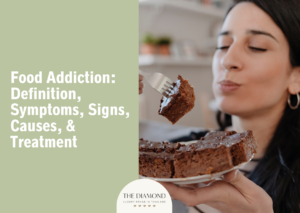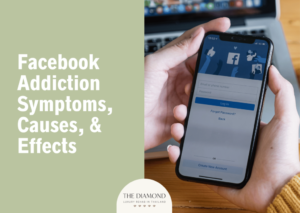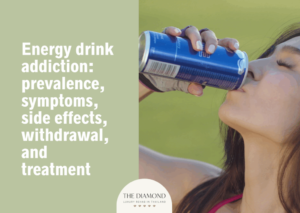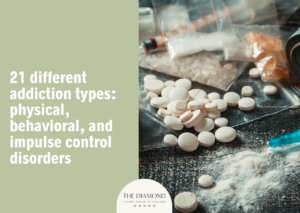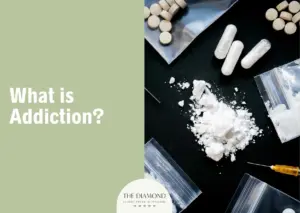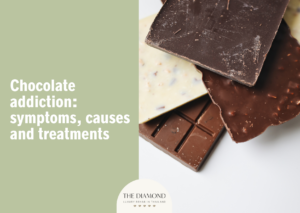Online gambling addiction: signs, symptoms, psychological effects, and treatments

Online gambling addiction describes an obsessive need to bet on digital platforms in spite of negative consequences to one’s finances, relationships and everyday obligations. The constant accessibility of online betting sites and apps fuels repeated play and creates difficulty in stopping even in the face of serious consequences.
The signs and symptoms of online gambling addiction include preoccupation with online gambling, mood swings, increasing amounts of money spent, inability to stop or reduce gambling, insomnia, chasing losses, craving, and lying about gambling habits.
The psychological effects of online gambling addiction are anxiety, depression, emotional instability, guilt and shame, and decreased coping ability.
Treatment options for online gambling addiction include cognitive behavioral therapy (CBT), motivational interviewing (MI), medications, support groups, and mindfulness and relaxation techniques.
What is online gambling addiction?
Online gambling addiction, otherwise known as internet gambling disorder, is characterized by the compulsive and repeated involvement in online gambling activities notwithstanding negative outcomes.
Contrary to casual betting, the condition is indicative of a more profound gambling problem where individuals persist in wagering money on games, sports or casinos despite experiencing numerous losses.
Professionals characterize the disorder as an advanced form of problem gambling, as it frequently progresses from occasional play to a cycle of dependency. The accessibility of online platforms intensifies the issue, since gambling opportunities are available around the clock and only a few clicks away.
How common is online gambling addiction?

Online gambling is becoming more common, as 0.77%–57.5% of teenagers exhibit problematic online gambling, significantly surpassing Calado et al.’s (2017) findings of 0.2%–12.3% for general problem gambling, a 2021 paper by Montiel et al., titled “Problematic online gambling among adolescents: A systematic review about prevalence and related measurement issues.”
Online gamblers exhibit rates 2–8 times greater compared to non-online counterparts, reinforcing the notion of online gambling’s addictive potential, attributed to factors such as accessibility and anonymity. However, the analysis warns a significant portion of this phenomenon is driven by mixed gamblers rather than solely by online activity.
Why is online gambling addictive?
Online gambling is addictive because the platforms are designed to keep players engaged for extended periods. The accessibility of digital gambling platforms allows individuals to place bets instantly from nearly any location, without meaningful limits or safeguards.
Convenience adds to the appeal, as users are able to participate from home or on the go without needing to visit a physical casino. The experience taps into psychological processes such as reward anticipation and reinforcement, driving individuals to continue gambling even after experiencing setbacks.
Young people are especially vulnerable because familiarity with technology typically leads to underestimating the risks involved. The activity additionally lacks social interaction, removing accountability potentially present in a traditional casino environment.
In severe cases, the pattern of behavior aligns with pathological gambling, where the compulsion overrides rational decision-making. The rapid pace of online games intensifies the urge to chase losses and win back money.
Is online gambling a mental illness?
Yes, online gambling is a mental illness because it falls under the diagnosis of gambling disorder, recognized in the Diagnostic and Statistical Manual of Mental Disorders, Fifth Edition (DSM-5) as a psychiatric condition.
Gambling disorder involves ongoing, recurrent patterns of harmful gambling behavior disrupting daily functioning. In digital settings, the disorder presents with the same symptoms and negative outcomes.
Individuals experience intense preoccupation with gambling activities and progressively raise the stakes in search of greater stimulation. Attempts to reduce or stop the behavior without professional help frequently fail despite strong intentions.
What are the signs and symptoms of online gambling addiction?
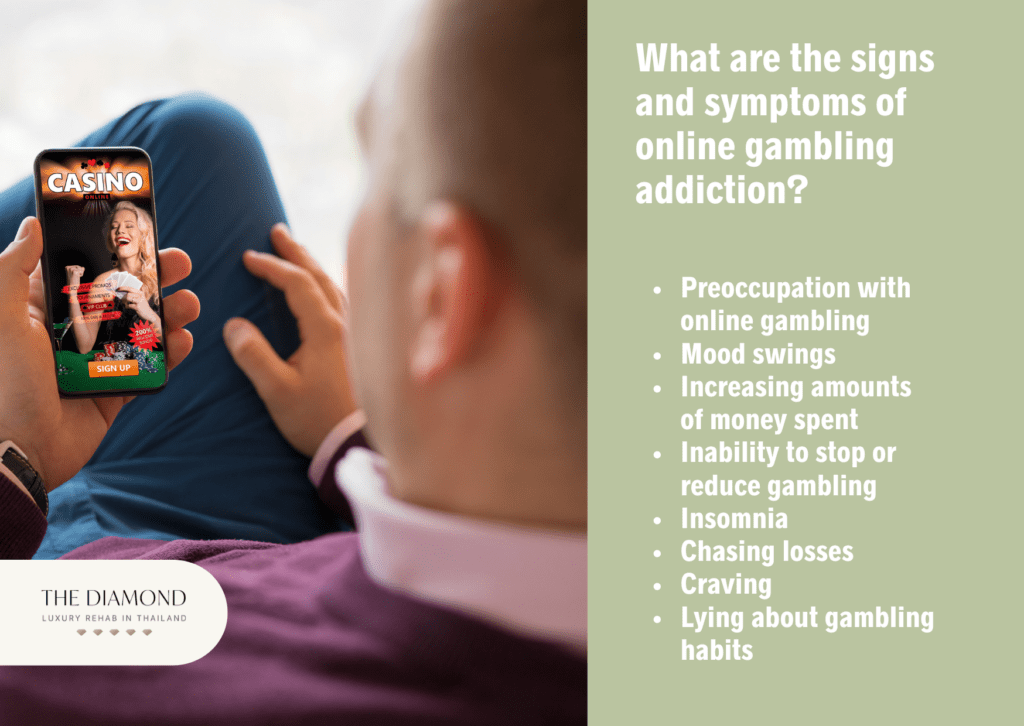
Signs and symptoms of online gambling addiction pertain to the particular actions and experiences signifying a problematic involvement with internet-based gambling activities. The signs and symptoms of online gambling addiction are listed below.
- Preoccupation with online gambling: Individuals with online gambling addiction experience persistent thoughts about gambling. Such preoccupation includes reliving past gambling experiences, planning the next gambling session, and figuring out ways to obtain money to gamble. Gambling-related thoughts dominate to the point of daily responsibilities and social interactions being disrupted.
- Mood swings: The anticipation and excitement of placing bets and the potential for winning leads to heightened feelings of euphoria. Conversely, the disappointment and frustration of losing results in significant emotional lows. Online gambling activities were primarily started to earn income and relieve boredom, serving as a pastime, and were more frequently terminated when the gambler felt bored, upset or tired. The accessibility of online gambling attracts young adults struggling with boredom; however, the activity itself eventually becomes monotonous, exhausting or distressing, as noted in a 2016 report by Goldstein et al., titled “Mood, motives, and money: An examination of factors that differentiate online and non-online young adult gamblers.”
- Increasing amounts of money spent: Another common manifestation of online gambling is the urge to wager larger sums of money to reach the same level of excitement. Such escalation pushes the gambler to seek higher stakes in order to recapture the initial thrill. The behavior results in severe financial losses as individuals keep raising the stakes despite the risks involved.
- Inability to stop or reduce gambling: Despite repeated efforts to reduce or quit gambling, individuals with an addiction remain unable to break the habit. Withdrawal-like symptoms—resembling those linked to substance dependence—emerge during attempts to stop. The compulsion to gamble overrides rational judgment and drives ongoing participation in gambling activities.
- Insomnia: Even after logging off, racing thoughts about wins, losses or future bets disrupt the ability to settle into restful sleep. Gambling was linked to worse subjective sleep in one group of participants in a 2021 paper by Thorne et al., titled “Gambling Problems Are Associated with Alcohol Misuse and Insomnia: Results from a Representative National Telephone Survey,” possibly because of factors like late-night venues or 24/7 online access.
- Chasing losses: Chasing losses involves a compulsion to keep gambling in an effort to regain money lost during earlier sessions. The belief in a major win capable of covering losses fuels behavior and drives repeated, even larger bets. The relentless pursuit of recovery ultimately deepens financial strain and emotional distress.
- Craving: Craving is a strong, irresistible urge to engage in online gambling, driven by the desire to experience the excitement and thrill associated with winning. Cravings are typically triggered by various cues, such as seeing gambling advertisements, receiving emails from gambling sites, or even thinking about past gambling experiences. A 2023 study by Mallorquí-Bagué et al., called “Craving in gambling disorder: A systematic review” revealed craving was a strong predictor of increased gambling episodes, gambling frequency, greater gambling disorder (GD) severity, decisions to chase losses, chasing persistence and the inability to delay gratification. In contrast, high-risk positive reinforcement situations (e.g., excitement) increased the intensity of cravings, thereby increasing gambling.
- Lying about gambling habits: Lying about gambling habits signals an attempt to conceal the extent of time and money spent on online platforms. Deception arises from guilt, shame or fear of judgment from family and friends. Hiding the behavior prevents others from recognizing the severity of the problem, allowing the condition to persist unchecked
What are the psychological effects of online gambling addiction?
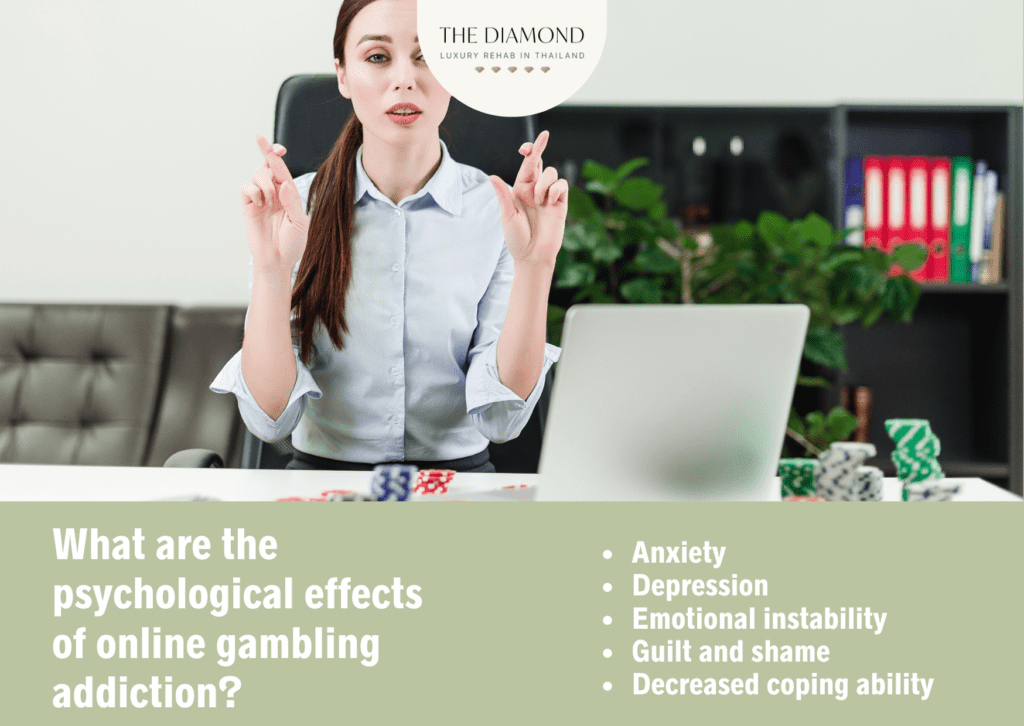
Psychological effects of online gambling addiction describe the mental and emotional consequences developing from compulsive engagement with digital gambling platforms. The psychological effects of online gambling addiction are listed below.
- Anxiety: Constant worry about financial losses creates ongoing tension and unease. Gambling causes a person to feel more anxious and on edge because the results are never guaranteed. According to a 2022 report by Cardwell et al., called “An exploratory study of anxiety-motivated gambling in adolescents: Associations with minority status and gambling, health and functioning measures,” adolescents with anxiety-motivated gambling (AMG) were more likely to notice permissive gambling attitudes and report gambling issues within the family. The higher likelihood of adolescents with AMG perceiving parents as supportive of gambling tends to encourage the activity among teenagers, considering the significant influence of parental behaviors.
- Depression: Suffering from financial devastation, damaged relationships, and an inability to rein in gambling behavior amplify feelings of depression. Affected people become disengaged from activities previously enjoyed, change eating habits, and have difficulty focusing. Findings of a 2018 study by Krause et al., titled “Explaining the relation between pathological gambling and depression: Rumination as an underlying common cause” showed ruminative brooding (RB) plays a key role in starting and maintaining gambling issues, linking gambling and depression through unhealthy emotional coping. Early on, brooding has a stronger impact than depression, driving individuals to gamble more, while depression often develops later as a result.
- Emotional instability: Mood swings intensify with financial stress and repeated disappointment. Feelings of guilt and shame surface after losses, while short-lived excitement from wins quickly fades. The constant shift between highs and lows undermines emotional balance and resilience. Over time, unstable emotions strain relationships and weaken overall mental health.
- Guilt and shame: Individuals frequently regret the money and time lost through excessive play. Unpleasant feelings emerge when personal values conflict with harmful gambling behavior. Persistent guilt and shame erode self-esteem and fuel negative self-perceptions. A 2022 study by Estévez et al., titled, “Shame and Blame in Gambling: Relationship with Emotion Regulation and Gambling Motives” found among the study participants, increased gambling severity is correlated with elevated levels of guilt and shame, both currently and within the past two weeks. Blame and shame relate to gambling severity via emotional pathways, with self-blame mediating shame’s escalation—potentially creating cycles of internalized negativity and gambling as escape.
- Decreased coping ability: Online gambling addiction significantly impairs an individual’s ability to cope with everyday stressors and challenges. The addiction often becomes a primary coping mechanism, replacing healthier strategies for managing stress and emotions. Reliance on gambling for emotional relief leads to a decreased capacity to handle stress, making the individual more vulnerable to emotional and psychological distress.
What are other consequences of online gambling addiction?
Other consequences of online gambling addiction encompass the effects of compulsive online gambling extending far beyond mental health issues and financial loss arising from such behavior. The other consequences of online gambling addiction are listed below.
- Altered neurobiological processes: Neurobiological processes shift in harmful ways when online gambling addiction takes hold, reshaping how the brain interprets reward and excitement. For a problem gambler, gambling cues trigger stronger reactions while ordinary pleasures feel less rewarding. A 2023 article by Emily Sohn, titled “How gambling affects the brain and who is most vulnerable to addiction” revealed how a meta-analysis found reduced ventral striatum activity in individuals with gambling disorders during anticipation of monetary rewards. This brain region plays a role in impulsive behavior linked to gambling problems. Studies additionally show smaller amygdala and hippocampus volumes, areas tied to emotional learning and stress regulation.
- Overall health deterioration: Long hours spent gambling often lead to poor sleep, fatigue and neglect of basic needs. Stress from a gambling problem raises the risk of headaches, digestive issues and weakened immunity. Unhealthy coping habits, such as overeating or substance use, tend to develop alongside the addiction.
- Influence on nutritional status: Nutritional status worsens when gambling takes priority over maintaining balanced eating habits. Long hours online encourage reliance on quick, unhealthy foods instead of proper meals. Financial strain from gambling further limits access to nutritious options. According to a 2016 study by Chamberlain et al., titled “Calorie intake and gambling: is fat and sugar consumption ‘impulsive’?” substantial correlation existed between elevated dietary fat and sugar consumption and the exacerbation of gambling disorder. Mechanisms include external stimuli (e.g., advertisements linking junk food and gambling) or shared reward pathway impairment (e.g., dopamine in the nucleus accumbens).
- Monetary losses and mounting debts: Monetary losses and mounting debts represent some of the most immediate consequences of online gambling addiction. Constant wagering drains savings and creates financial instability. Affected individuals turn to credit cards or loans, deepening the burden of debt. The ongoing strain not just damages financial security but fuels stress and conflict in personal relationships as well.
- Legal consequences: Legal consequences emerge when individuals engage in unlawful acts to sustain online gambling habits. Theft, fraud or misuse of funds occur as debts grow and resources run out. Such behavior exposes the person to criminal charges, fines or imprisonment. Beyond penalties, a damaged legal record restricts future opportunities and worsens the impact of addiction.
What are the treatments for online gambling addiction?
Treatments for online gambling addiction describe structured approaches designed to help individuals regain control over gambling behavior and reduce harmful consequences. The treatments for online gambling addiction are listed below.
- Cognitive behavioral therapy (CBT): Breaking free from the pull of online gambling requires reshaping how a person thinks and responds to urges. CBT supports recovery by identifying distorted beliefs about gambling and replacing harmful perspectives with healthier ones. Findings of a 2023 paper by Higueruela-Ahijado et al., titled “Efficacy of cognitive-behavioral therapy in improving the quality of life of people with compulsive gambling, a systematic review” revealed CBT enhanced quality of life (QoL) by diminishing the amount of money gambled (e.g., 30–50% reductions in weekly spending) and gambling diagnosis scores. The approach additionally helped with symptoms like depression and anxiety, but the effects don’t happen right away (e.g., manifesting over 3–6 months).
- Motivational interviewing (MI): Motivational interviewing (MI) plays an important role in gambling treatment by strengthening a person’s internal drive to change harmful behavior. Empathy and open dialogue are employed to identify the personal motivations behind the decision to reduce or discontinue wagering, rather than confrontation. People get clearer on the adverse effects of addiction and the beneficial effects of change through guided talks.
- Medications: Prescribed medications ease symptoms of depression, anxiety or poor impulse regulation fueling compulsive gambling. The combined use of fluoxetine (an antidepressant) and risperidone (an atypical antipsychotic) proved efficacious in all three cases examined in a 2023 paper by Bai et al., called “Fluoxetine combined with risperidone in treatment of online gambling disorder-case report.” The drugs resulted in swift decreases in gambling urges (within 1–2 weeks), alleviation of comorbid anxiety and depression, enhanced sleep quality, and maintained abstinence at 6-month follow-ups. No relapses or adverse effects were noted, indicating tolerance.
- Support groups: Support groups like Gamblers Anonymous provide a community of individuals who share similar struggles with gambling addiction. Regular meetings and a regimented program centered on the 12-step paradigm allow groups to provide accountability, peer support, and encouragement. In the course of such conversations, members frequently pick up more constructive ways of handling stress and cravings. Staying away from risky gambling behaviors becomes easier with consistent involvement, leading to greater accountability.
- Mindfulness and relaxation techniques: Mindfulness trains a person to observe thoughts and urges without reacting, lowering the pull of gambling. Relaxation techniques—including breathing exercises and meditation—alleviate stress that frequently incites destructive habits. Enhanced self-awareness acquired through mindfulness and relaxation techniques augments decision-making in high-pressure scenarios.
How to overcome online gambling addiction?
To overcome online gambling addiction, the first step involves acknowledging the harmful patterns and recognizing how gambling interferes with daily life. Removing access to betting platforms, either through self-exclusion or content blockers, reduces temptation and creates distance from risky behavior.
Restricting funds available for gambling prevents impulsive spending and reduces opportunities to place bets. Various individuals benefit from learning to manage personal triggers like boredom, stress or social pressure, since such moments fuel gambling urges.
Exercise, hobbies and social activities are healthier substitutes providing a positive release and breaking the cycle of compulsive gambling. Establishing structure in daily routines helps limit idle moments likely to trigger relapse.
Professional help, like therapy or counseling, gives people the direction and coping skills needed to recover for good. Individuals are more effectively able to stop gambling addiction by identifying and resolving underlying issues such as depression or anxiety.
During the healing process, support groups build a strong feeling of community by giving people with similar experiences a place to talk and get support.
When is online gambling addiction counseling necessary?
Online gambling addiction counseling is necessary when gambling behavior begins to seriously affect one’s finances, relationships, and overall health. Warning signs include struggling to control gambling habits, spending large amounts of time thinking about bets and turning to gambling as a way to avoid stress or emotional struggles.
Individuals who keep gambling despite repeated failures to quit demonstrate a strong need for professional guidance. Lying to loved ones or concealing gambling activity further shows outside intervention is required.
Counseling provides structured support to uncover the root causes behind compulsive behavior and develop healthier coping mechanisms. Professional help additionally offers tools to manage urges and rebuild damaged trust with family and friends.
What are the symptoms of online gambling addiction withdrawal?
Symptoms of online gambling addiction withdrawal refer to the reactions surfacing when a person attempts to reduce or stop gambling after developing a dependency. The symptoms of online gambling addiction withdrawal are listed below.
- Intense cravings: During withdrawal, the brain struggles without the dopamine surge gambling once provided, leaving a powerful pull toward risky behavior. Urges feel overwhelming because the mind becomes preoccupied with recreating the same sense of reward. Such preoccupation disrupts focus on daily responsibilities, and many describe cravings as nearly impossible to ignore.
- Irritability: Emotional balance becomes disrupted when gambling ends, leading to heightened sensitivity to stress. Small frustrations trigger exaggerated reactions, and mood swings tend to strain personal relationships. The lack of familiar stimulation leaves the nervous system unsettled, fueling short tempers and a constant edge of anger.
- Restlessness: A strong sense of agitation emerges as both body and mind search for stimulation once gotten from gambling. People experiencing withdrawal pace, fidget or have difficulty remaining still for long periods. Aside from seeing the aggressive discussion the gambler engages in in online gambling chatrooms, restlessness is frequently hard to identify online, according to a 2022 study by Maris Catania and Mark D. Griffiths, titled “Applying the DSM‑5 Criteria for Gambling Disorder to Online Gambling Account‑Based Tracking Data: An Empirical Study Utilizing Cluster Analysis.” Another study by Haefeli et al. (2011) cited in the report confirmed this, finding that gamblers who later chose to stop gambling used hostile language with the gambling operator’s staff.
- Headaches: Elevated stress hormones and muscle tension build up during withdrawal, producing persistent headaches. The pain grows worse when paired with disrupted rest and racing thoughts. A physical symptom like headache highlights how psychological strain translates directly into bodily discomfort, further complicating recovery.
- Racing heart: The body reacts to withdrawal with surges of adrenaline, causing the heart to beat faster than usual. The sensation feels alarming, leaving individuals convinced something is physically wrong. Fear of losing control intensifies the pounding rhythm, creating a loop of anxiety and distress. A 2011 paper by Germain et al., called “Brief report: coronary heart disease: an unknown association to pathological gambling” came to the conclusion of a strong correlation between pathological gambling (PG) and coronary heart disease (CHD) (8.2% prevalence in CHD vs. 0% in controls), possibly as a result of similar risks such as substance abuse, stress and depression. Pathological gamblers’ elevated cortisol levels and lifestyle choices are thought to make them more susceptible to CHD.
- Palpitations: Stress during withdrawal triggers pounding, fluttering or skipped heartbeats, creating a sense of panic. Irregular heart rhythms unsettle the individual and heighten awareness of bodily changes. The combination of fear and physical discomfort makes palpitations one of the more distressing withdrawal symptoms.
- Tightness in the chest: Anxiety frequently manifests as a constricted or heavy sensation across the chest, creating the impression of being physically trapped. The experience resembles a panic attack and causes immediate fear of serious health problems. Both muscle tension and heightened emotional distress contribute to the discomfort, making relaxation difficult.
What are the causes of online gambling addiction?
Causes of online gambling addiction pertain to the root causes of a person’s propensity to engage in online gambling activities. The causes of online gambling addiction are listed below.
- Genetic predisposition: Genetic predisposition refers to the inherited traits making an individual more susceptible to developing online gambling addiction. Findings of a 2020 study by Huggett et al., titled “The Structure and Subtypes of Gambling Activities: Genetic, Psychiatric and Behavioral Etiologies of Gambling Frequency” highlighted the moderate involvement of genetics in gambling frequency (30–40% heritability), with common influences across activities but are more particular to skill-based ones. Higher-risk classes have stronger genetic loading and overlap with addiction features, indicating subtypes reflect genetically driven trajectories.
- Environmental influences: Environmental influences play a significant role in the development of online gambling addiction. Easy access to online gambling sites, often facilitated by the internet and mobile devices, makes gambling more convenient and pervasive. Additionally, targeted advertising and promotions entice individuals to gamble, while social pressures from friends or online communities further encourage the behavior.
- Reward system dysregulation: Dysregulation of the brain’s reward system, involving neurotransmitters like dopamine, contribute to online gambling addiction. Gambling activates the brain’s reward pathways, creating feelings of pleasure and excitement similar to those produced by substances like drugs and alcohol. Over time, the brain becomes conditioned to seek out rewarding experiences associated with gambling.
- Cognitive distortions: Faulty thinking patterns distort how a person evaluates risk and reward, making losses feel less significant and wins seem more likely. Misinterpretations such as believing in a “near miss” or assuming past losses increase future chances encourage continued betting. A 2022 paper by Thurm et al., called “The Relationship Between Gambling Disorder, Stressful Life Events, Gambling‑Related Cognitive Distortions, Difficulty in Emotion Regulation, and Self‑Control” explained cognitive distortions associated with gambling include erroneous beliefs on one’s ability to manipulate or predict the outcome of games relying on chance. The belief of a gambler being able to win back lost funds by keeping on playing and the anticipation that gambling will bring about positive results are common examples of gambling-related cognitive distortions.
- Peer influence: Peer pressure contributes to online gambling addiction by creating a strong desire to fit in with friends or social circles. Individuals gamble more frequently to gain acceptance or avoid being judged, even when feeling uneasy about personal choices. Constant exposure to peers who gamble normalizes the behavior and encourages higher levels of participation.
What are the risk factors for online gambling addiction?
Risk factors for online gambling addiction refer to the conditions, influences or personal traits raising the likelihood of developing harmful gambling habits. The risk factors for online gambling addiction are listed below.
- Co-occurring physical and mental health conditions: Physical and mental health comorbidities significantly increase the risk of online gambling addiction. Prospective studies conducted over the past 14 years have demonstrated gambling disorder (GD) has a high comorbidity with mood disorders (41–50%), anxiety disorders (41%) and substance use disorders (19–33%). Such a correlation is indicative of shared neurobiological and environmental risks, as noted in a 2025 report by Rishi Sharma and Aviv Weinstein, titled “Gambling disorder comorbidity a narrative review.”
- Personality traits: Certain personality traits shape how individuals handle temptation and uncertainty. As per a 2023 study by Kaur et al., called “Association between problem gambling and personality traits: a longitudinal study among the general Norwegian population,” over time, the probability of having problem gambling appears to increase with neuroticism, a trait characterized by heightened emotional instability. In contrast, the risk appears to be reduced by agreeableness, a trait defined by empathy and cooperation, and conscientiousness, a trait involving reliability and organization.
- Age: Younger people are more inclined to engage in risk-taking and pursue high-stimulation activities. According to a 2023 report by Moreira et al., titled “Risk Factors for Gambling Disorder: A Systematic Review,” individuals under 30 showed a higher likelihood of developing GD, with severity linked to gambling onset before age 20. The review further observed how developmental vulnerabilities, such as impulsivity surges during this period, present heightened risks for adolescents and young adults. The observation is especially true for individuals beginning gambling at an early age.
- Gender: Gender influences gambling behavior because men and women engage with games differently, leading to distinct vulnerability patterns. Male gender showed a significant correlation with GD. A paper by Moreira et al., called “Risk Factors for Gambling Disorder: A Systematic Review” published in 2023 revealed men appeared more frequently in GD samples, revealing higher prevalence rates and more severe symptoms compared with women. The authors suggested the link stemmed from cultural influences or varying access to gambling opportunities.
- Financial motivations: The lure of quick money appears appealing during financial strain. The belief of a single win resolving mounting debts or cover urgent expenses drives repeated betting. Eventually, chasing monetary relief turns into a cycle where losses create stronger urges to recover funds through further gambling.


